Walther CCP M2 9mm Pistol, 3.54" Barrel, 3 Dot Sights, Gray, Black – 5083505 For Sale
$463.99
The Walther CCP M2 9mm Pistol, equipped with a 3.54″ barrel and 3 Dot Sights, seamlessly combines style, ergonomics, and performance for concealed carry purposes. Boasting a sleek gray and black finish, it is both visually appealing and highly functional. Its compact design ensures discreet and comfortable carrying, while the innovative Walther SOFTCOIL gas-delayed blowback system enhances shooting accuracy and lowers recoil, offering an improved shooting experience. Ideal for individuals seeking a dependable and efficient concealed carry firearm, the CCP M2 is designed to deliver both confidence and security.
What is the difference between a CCP and a CCP M2?
The acronym “CCP” commonly stands for “Central Counterparty.” A Central Counterparty is a financial institution that facilitates the clearing and settlement of trades in financial markets by acting as an intermediary between buyers and sellers. Its primary role is to reduce the risk in the trading process by guaranteeing the execution of trades, thus enhancing the stability and efficiency of financial markets.
On the other hand, “CCP M2” is not a widely recognized term in financial contexts. It could potentially refer to a specific variant or version related to Central Counterparties, or it might pertain to a product, model, or framework in some other context or industry. Without specific context or additional information, it’s challenging to definitively explain “CCP M2.”
If you are referring to a specific industry, company product, or subject area outside of general financial market terminology, please provide additional context for a more precise explanation.
Is Walther as good as Glock?
The comparison between Walther and Glock handguns often depends on personal preference and specific requirements. Both brands are reputable and have their own strengths.
– **Walther**: Known for ergonomic designs and quality craftsmanship, Walther firearms often offer a comfortable grip and innovative features. Models like the Walther PPQ and PDP are praised for their trigger mechanisms and overall handling.
– **Glock**: Renowned for reliability and simplicity, Glock handguns are favored by law enforcement and military personnel worldwide. They are known for their durability, ease of maintenance, and a wide variety of aftermarket accessories.
In terms of which is “better,” it typically comes down to what you prioritize in a firearm—ergonomics and trigger quality (Walther) versus durability and simplicity (Glock). Trying both brands personally, if possible, is recommended to see which suits your preferences and needs best.
Is the WALTHER PPQ M2 discontinued?
Yes, the WALTHER PPQ M2 has been discontinued.
Why is Walther so expensive?
Walther firearms are often considered expensive due to several factors. Firstly, the brand has a long-standing reputation for producing high-quality, reliable, and innovative firearms. Walther uses high-grade materials and advanced manufacturing processes, which contribute to the performance and durability of their products. Additionally, their firearms often incorporate features that appeal to enthusiasts and professionals, such as ergonomic designs and superior accuracy. The company also invests in research and development to continuously improve their products, a cost that is typically reflected in the price. Lastly, Walther’s heritage and status in the firearms industry can add a level of prestige and desirability, further justifying their premium pricing.
What does CCP mean firearm?
In the context of firearms, “CCP” commonly stands for “Concealed Carry Permit.” It is a license or permit that allows an individual to carry a handgun or other firearm in a concealed manner in public. The requirements and regulations for obtaining a CCP vary by jurisdiction.
Where is the Walther CCP made?
The Walther CCP is made in Germany.
What Walther does John Wick use?
John Wick uses a Walther PPS in the first film of the series.
What gun brand is better than Glock?
The question of whether any gun brand is “better” than Glock is subjective and depends on individual preferences, needs, and experiences. Glock is known for its reliability, simplicity, and widespread use among law enforcement and civilians. However, other brands like Sig Sauer, Smith & Wesson, or Heckler & Koch are also highly regarded and may be preferred for different reasons such as ergonomics, aesthetics, or specific features. Ultimately, the choice of gun brand is personal and should consider factors such as purpose, comfort, and reliability.
What Glock do Navy SEALs use?
Navy SEALs use the Glock 19. This compact, 9mm pistol is favored for its reliability, durability, and ease of use in various conditions.
Do Walther pistols have a safety?
Yes, many Walther pistols have safety features. The specifics can vary depending on the model, but common safety features include manual safeties, trigger safeties, and firing pin blocks. Always refer to the manufacturer’s details for the specific model you are interested in.
What does PPQ stand for?
PPQ can stand for several things depending on the context. Some common meanings include:
1. **Parts Per Quarter** – Often used in manufacturing or supply chain contexts.
2. **Pre-Purchase Questionnaire** – Used in various industries to assess needs or risks before purchasing.
3. **Pollution Prevention and Control** – Common in environmental contexts.
4. **Pixel Per Quadrant** – Related to digital imaging technologies.
5. **Probable Prime Quest** – Pertains to mathematics, specifically prime number testing.
If you have a specific context in mind, let me know for a more tailored answer!
Does Smith and Wesson make Walther?
No, Smith & Wesson does not make Walther firearms. Walther is a separate firearms manufacturer based in Germany, known for producing handguns. However, Smith & Wesson and Walther have had business agreements in the past where Smith & Wesson imported and distributed Walther products in the United States.
Who owns Walther now?
As of my last update, Walther is owned by the PW Group (formerly known as the Umarex Group). The PW Group is a family-owned company based in Germany. Please verify with current sources to ensure this information is still accurate.
What military uses Walther?
The Walther brand, known for its firearms, has been used by various military and law enforcement organizations around the world. Notably, the Walther P38 was used by Nazi Germany during World War II. More recently, the Walther P99 and its variants have been used by several police and military forces in different countries, including Germany and Poland. The specific usage can vary over time and among different branches within the military and law enforcement.
Why are Kimber guns expensive?
Kimber guns tend to be expensive due to several factors:
1. **Quality Materials**: Kimber uses high-quality materials in the manufacturing process, including premium metals and finishes that enhance durability and performance.
2. **Precision Engineering**: The guns are often known for their precision engineering and tight tolerances, which can improve accuracy and reliability.
3. **Craftsmanship**: Kimber firearms are often handcrafted with attention to detail, contributing to higher labor costs and, consequently, a higher price tag.
4. **Brand Reputation**: Kimber has built a reputation for producing high-end firearms, and consumers are often willing to pay more for trusted brands associated with quality and performance.
5. **Customization Options**: Many Kimber guns offer customization options, allowing buyers to tailor features to their specific preferences, adding to the overall cost.
6. **Research and Development**: Investing in ongoing research and development to innovate and improve their firearms can also contribute to higher prices.
These factors combined make Kimber firearms more expensive compared to some other brands, reflecting their status as premium products in the market.
Be the first to review “Walther CCP M2 9mm Pistol, 3.54" Barrel, 3 Dot Sights, Gray, Black – 5083505” Cancel reply
Related products
Walther CCP M2
Walther CCP M2
Walther CCP M2
Walther CCP M2
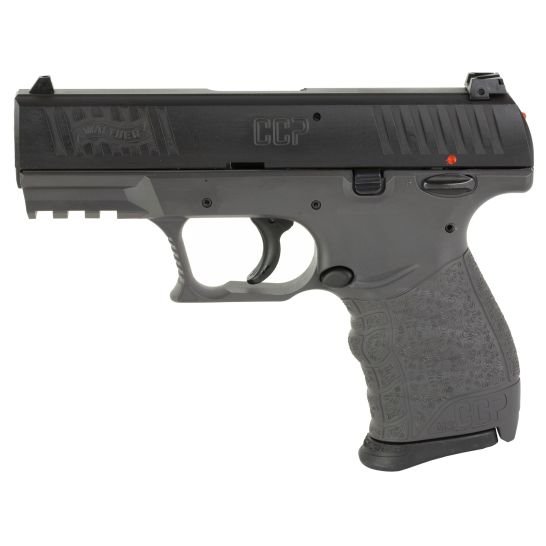
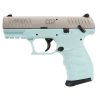
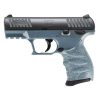
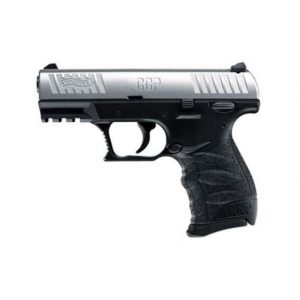
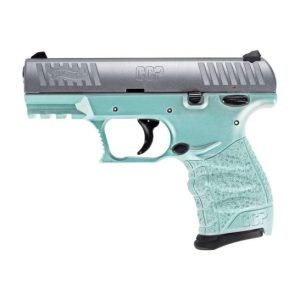
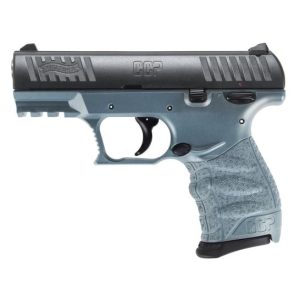
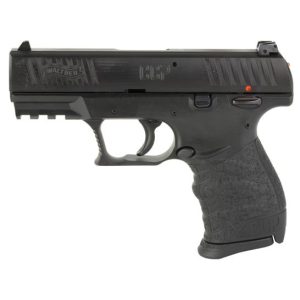
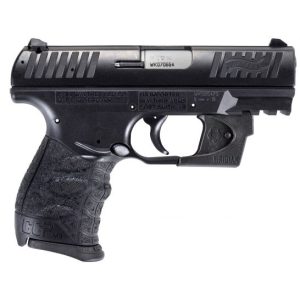
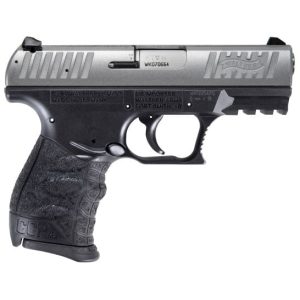
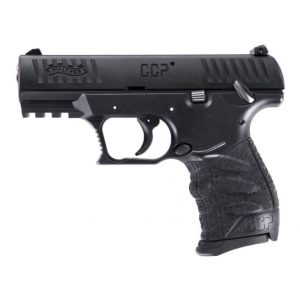
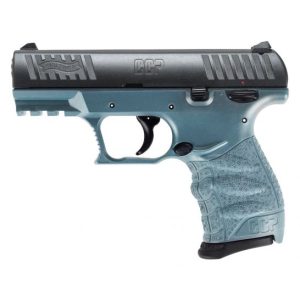
Reviews
There are no reviews yet.